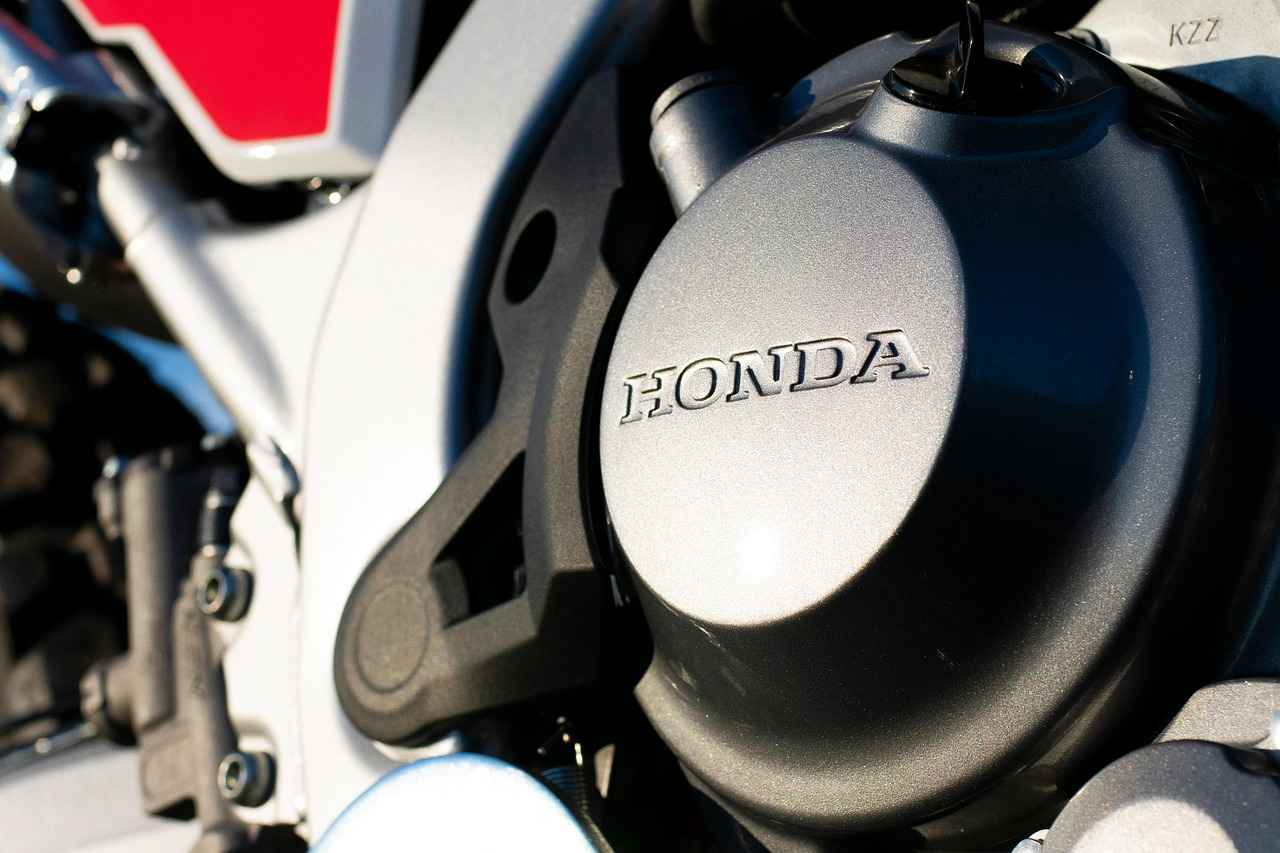When considering a new vehicle, many buyers are curious about the drivetrain options available. One common question is whether the Honda Accord, a popular midsize sedan, comes with all-wheel drive (AWD) capabilities. This article explores the history, specifications, and alternatives of the Honda Accord, providing comprehensive insights for potential buyers.
What is All-Wheel Drive (AWD)?
Understanding the concept of all-wheel drive is crucial for evaluating vehicle performance. AWD systems distribute power to all wheels, enhancing traction and stability, especially in adverse conditions such as rain or snow. This feature is particularly beneficial for drivers living in regions with challenging weather.
Do Honda Accords Offer AWD?
Historically, Honda Accords have been predominantly front-wheel drive vehicles. However, in recent years, Honda has introduced AWD options in select models, catering to a wider range of consumer needs and preferences. This shift reflects the growing demand for vehicles that can handle diverse driving conditions.
Which Honda Accord Models Have AWD?
Not all Honda Accord models feature all-wheel drive. It is essential to identify which specific trims or years include this capability. Typically, AWD options are found in newer models, particularly those designed to enhance versatility and performance.
Benefits of All-Wheel Drive in Honda Accords
- Improved Traction: AWD provides better grip on slippery roads, making it safer during inclement weather.
- Enhanced Handling: The distribution of power to all wheels improves handling and stability.
- Increased Confidence: Drivers feel more in control, especially in challenging driving conditions.
Comparing AWD to Front-Wheel Drive
Understanding the differences between AWD and front-wheel drive (FWD) systems can help buyers make informed decisions. While FWD is generally more fuel-efficient, AWD offers superior traction and control. Each system has its pros and cons depending on driving conditions and personal preferences.
What Makes the Honda Accord Stand Out?
The Honda Accord is celebrated for its reliability, fuel efficiency, and spacious interior. These qualities make it a popular choice among midsize sedans, regardless of drivetrain options. The Accord’s reputation for longevity and low maintenance costs further enhances its appeal.
How Does AWD Impact Fuel Efficiency?
While AWD offers enhanced performance, it can also affect fuel efficiency. Typically, vehicles equipped with AWD consume more fuel than their FWD counterparts due to the added weight and complexity of the drivetrain. Understanding this trade-off is vital for buyers concerned about long-term costs and environmental impact.
Are There Alternatives to AWD in the Honda Lineup?
If AWD is a priority, exploring other models in the Honda lineup, such as the CR-V or HR-V, may provide more suitable options for consumers seeking all-wheel drive capabilities. These models are designed with AWD in mind, offering additional features that enhance performance and comfort.
What Are Expert Opinions on AWD Honda Accords?
Expert reviews and consumer feedback can provide valuable insights into the performance and reliability of AWD Honda Accords. Many automotive experts praise the Accord’s smooth handling and comfortable ride, while also noting the benefits of AWD in enhancing driving confidence.
How to Choose the Right Honda Accord for You?
Selecting the ideal Honda Accord involves considering factors like drivetrain preferences, budget, and intended use. Potential buyers should evaluate their driving habits and needs to determine whether an AWD model is the best fit.
Where to Find the Best Deals on Honda Accords?
Finding the best deals on Honda Accords, especially those with AWD, can involve researching local dealerships, online marketplaces, and promotions. Comparing prices and features across different models can help ensure you get the best value for your investment.

What is All-Wheel Drive (AWD)?
Understanding All-Wheel Drive (AWD) is essential for anyone interested in vehicle performance, particularly in challenging driving conditions. AWD systems are designed to distribute power to all four wheels of a vehicle, which significantly enhances traction and stability. This capability becomes especially important when navigating through rain, snow, or off-road terrains, where maintaining control can be a challenge.
Unlike traditional two-wheel drive systems, which typically send power to either the front or rear wheels, AWD systems can automatically adjust power distribution based on the conditions. This means that if one wheel starts to slip, the system can redirect power to the wheels with more grip, thereby improving overall handling and safety.
There are two primary types of AWD systems: full-time AWD and part-time AWD. Full-time AWD continuously distributes power to all wheels, providing optimal performance at all times. In contrast, part-time AWD operates primarily in two-wheel drive but can engage all wheels when needed, offering better fuel efficiency under normal driving conditions.
Furthermore, modern AWD systems often incorporate advanced technologies such as traction control and electronic stability control. These features work together to enhance vehicle performance by automatically adjusting power and braking to maintain stability during cornering or sudden maneuvers.
For potential buyers, understanding the benefits of AWD can be a game-changer. Vehicles equipped with AWD often provide a more confident driving experience, especially for those living in areas with harsh weather conditions. The added traction can also be beneficial for outdoor enthusiasts who enjoy activities like skiing or off-roading.
However, it is important to note that while AWD offers enhanced performance, it can also impact fuel efficiency. Vehicles with AWD tend to consume more fuel compared to their two-wheel drive counterparts due to the additional weight and complexity of the system. Therefore, buyers should weigh the benefits against potential long-term costs.
In summary, all-wheel drive is not just a feature; it’s a significant enhancement to vehicle performance. By distributing power to all wheels, AWD systems provide improved traction, stability, and overall driving confidence, making them an attractive option for many drivers. Whether navigating city streets or exploring rugged terrains, understanding AWD can help consumers make informed decisions when purchasing their next vehicle.

Do Honda Accords Offer AWD?
The Honda Accord has long been a staple in the midsize sedan market, known for its reliability, comfort, and fuel efficiency. Traditionally, these vehicles have been designed with a front-wheel drive (FWD) system, which has served the needs of many drivers effectively. However, as consumer preferences evolve, so too does Honda’s approach to its popular Accord line. This article explores whether Honda Accords now offer all-wheel drive (AWD) options, providing insights for potential buyers.
Understanding all-wheel drive is essential for evaluating vehicle performance. AWD systems are designed to distribute power to all four wheels, enhancing traction and stability, especially in adverse weather conditions such as rain or snow. This feature can significantly improve handling and control, making it a desirable option for many drivers.
Historically, Honda Accords have been predominantly front-wheel drive vehicles. However, recent models have introduced AWD options, catering to a wider range of consumer needs and preferences. This shift reflects Honda’s response to increased demand for vehicles that can handle diverse driving conditions, particularly in regions that experience harsh winters or frequent rain.
Not all Honda Accord models feature all-wheel drive. The AWD capability is typically found in the newer models, particularly those released in the last few years. It’s essential to identify which specific trims or years include this feature. Buyers interested in AWD should focus on the latest iterations of the Accord, as Honda continues to innovate and expand its offerings.
- Improved Traction: AWD provides better grip on slippery or uneven surfaces, enhancing safety.
- Enhanced Handling: Drivers benefit from improved control, especially during cornering and in adverse weather.
- Increased Confidence: AWD gives drivers peace of mind, knowing their vehicle can handle challenging conditions.
Understanding the differences between AWD and front-wheel drive (FWD) systems can help buyers make informed decisions. While FWD is often more fuel-efficient and cost-effective, AWD excels in providing better traction and stability. Each system has its pros and cons, depending on driving conditions and personal preferences.
The Honda Accord is renowned for its reliability, fuel efficiency, and spacious interior. These qualities make it a popular choice among midsize sedans, regardless of the drivetrain options. The addition of AWD in recent models enhances its appeal, offering a versatile option for drivers who prioritize both comfort and performance.
While AWD offers enhanced performance, it can also affect fuel efficiency. Vehicles with AWD systems tend to consume more fuel due to the added weight and complexity of the drivetrain. Understanding this trade-off is vital for buyers concerned about long-term costs and environmental impact. It’s advisable for potential buyers to consider their driving habits and needs before making a decision.
If AWD is a priority, exploring other models in the Honda lineup, such as the CR-V or HR-V, may provide more suitable options for consumers seeking all-wheel drive capabilities. These vehicles are designed with AWD as a standard feature, catering to those who require enhanced traction and stability.
Expert reviews and consumer feedback can provide valuable insights into the performance and reliability of AWD Honda Accords. Many experts praise the vehicle for its smooth ride, advanced safety features, and overall value, making it a strong contender in the midsize sedan market.
Selecting the ideal Honda Accord involves considering factors like drivetrain preferences, budget, and intended use. Prospective buyers should test drive different models to assess their performance and comfort levels, ensuring they make a well-informed decision.
Finding the best deals on Honda Accords, especially those with AWD, can involve researching local dealerships, online marketplaces, and promotions. It’s essential to compare prices and incentives to ensure you get the best value for your investment.

Which Honda Accord Models Have AWD?
The Honda Accord has long been a favorite among midsize sedans, known for its reliability, comfort, and fuel efficiency. However, when it comes to all-wheel drive (AWD), not all models in the Accord lineup offer this feature. This article explores which specific Honda Accord trims and model years come equipped with AWD, ensuring potential buyers have the information they need to make an informed decision.
All-wheel drive systems are designed to provide power to all four wheels of a vehicle, enhancing traction and stability, particularly in challenging weather conditions. Traditionally, Honda Accords have been predominantly front-wheel drive (FWD), which is sufficient for most driving conditions. However, as consumer preferences have evolved, Honda has started to integrate AWD options into select models.
As of now, the AWD feature is primarily available in the newer Honda Accord models, particularly in the 2023 Honda Accord and beyond. The specific trims that include AWD options are:
- Honda Accord Sport: This trim offers a balanced combination of performance and comfort, making it an attractive choice for those seeking AWD.
- Honda Accord Touring: The Touring trim is equipped with advanced features and luxury touches, along with the AWD capability for enhanced versatility.
It is essential for buyers to verify the specific model year and trim, as earlier versions of the Honda Accord do not come with AWD. For example, models from 2020 and prior are exclusively FWD.
Choosing a Honda Accord with AWD can significantly improve driving confidence, especially in adverse weather conditions. The benefits of AWD include:
- Improved Traction: AWD systems provide better grip on slippery surfaces such as snow, ice, or rain.
- Enhanced Stability: Power distribution to all four wheels helps maintain control during sharp turns and sudden maneuvers.
- Versatile Performance: AWD vehicles can handle various terrains, making them suitable for diverse driving conditions.
While AWD offers various advantages, it is also important to consider the differences between AWD and FWD systems. FWD vehicles, like most previous Honda Accord models, are generally lighter and more fuel-efficient. However, they may lack the same level of traction and stability that AWD provides in challenging conditions.
One of the trade-offs of choosing an AWD Honda Accord is the potential impact on fuel efficiency. Generally, AWD systems can lead to slightly lower gas mileage compared to their FWD counterparts. It is crucial for buyers to weigh the benefits of AWD against the possible increase in fuel costs.
If AWD is a top priority, buyers may also want to consider other models in the Honda lineup, such as the Honda CR-V or Honda HR-V, which offer AWD options across more trims and are designed for a broader range of driving conditions.
Expert reviews and consumer feedback often highlight the performance and reliability of AWD Honda Accords. Many drivers appreciate the added control and peace of mind that comes with AWD, especially in regions that experience harsh winters or frequent rain.
When selecting a Honda Accord, consider factors such as your typical driving conditions, budget, and whether AWD is a necessity. Evaluating your personal needs will help you choose the ideal model and trim.
To secure the best deals on Honda Accords with AWD, research local dealerships and online marketplaces. Look for promotions or certified pre-owned options that can offer significant savings while still providing the desired features.

Benefits of All-Wheel Drive in Honda Accords
When considering the benefits of all-wheel drive (AWD) in Honda Accords, it is essential to understand how this feature enhances the driving experience. AWD systems are designed to distribute power to all four wheels, which significantly improves vehicle performance under various conditions. This article explores the numerous advantages that come with AWD in Honda Accords, helping potential buyers make informed decisions.
One of the most significant benefits of AWD is improved traction on slippery or uneven surfaces. Whether you’re navigating through rain, snow, or ice, an AWD system provides better grip compared to traditional front-wheel drive (FWD) systems. This enhanced traction allows drivers to maintain control and stability, reducing the likelihood of skidding or losing control in adverse weather conditions.
AWD systems offer enhanced handling capabilities, particularly during cornering and sudden maneuvers. By distributing power to all wheels, AWD helps maintain balance and stability, allowing drivers to navigate curves and turns with greater confidence. This is particularly beneficial when driving on winding roads or during inclement weather, where maintaining control is crucial.
For many drivers, the confidence that comes with AWD is invaluable. Knowing that the vehicle can handle various conditions and terrains allows for a more relaxed driving experience. This increased confidence can be especially important for those who frequently travel in areas prone to harsh weather or challenging road conditions.
AWD systems are designed to adapt to changing road conditions. This versatility allows drivers to switch seamlessly between different driving environments, whether it be city streets, highways, or off-road adventures. The ability to tackle a variety of terrains makes AWD a desirable feature for many drivers looking for a reliable vehicle.
For those who enjoy off-road driving, AWD provides the necessary power to tackle rough terrains effectively. The enhanced traction and stability offered by AWD systems enable drivers to navigate through mud, gravel, and rocky paths with ease, making the Honda Accord a capable choice for light off-road adventures.
Safety is a top priority for many drivers, and AWD can contribute to a safer driving experience. The improved traction and stability provided by AWD systems help reduce the risk of accidents caused by loss of control. Additionally, the enhanced handling characteristics can aid in avoiding potential hazards, making AWD-equipped Honda Accords a safer option for families and individuals alike.
While AWD offers numerous advantages, it is essential to consider its impact on fuel efficiency. Generally, vehicles equipped with AWD may experience slightly lower fuel economy compared to their FWD counterparts due to the additional weight and complexity of the AWD system. However, advancements in technology have led to more fuel-efficient AWD systems, making them a viable option for those concerned about gas mileage.
In summary, the benefits of all-wheel drive in Honda Accords are numerous and significant. From enhanced traction and improved handling to increased driver confidence and safety, AWD systems provide a comprehensive solution for those seeking a reliable and versatile vehicle. Whether you’re navigating city streets or tackling challenging terrains, the AWD feature in Honda Accords ensures a safer and more enjoyable driving experience.

Comparing AWD to Front-Wheel Drive
When it comes to choosing a vehicle, understanding the differences between All-Wheel Drive (AWD) and Front-Wheel Drive (FWD) systems is essential for making an informed decision. Each drivetrain configuration offers unique advantages and disadvantages that can significantly influence your driving experience, especially depending on the conditions you frequently encounter.
A All-Wheel Drive system distributes power to all four wheels of the vehicle, which enhances traction and stability. This is particularly beneficial in adverse weather conditions such as rain, snow, or ice. AWD is designed to automatically adjust the power distribution based on road conditions, providing a seamless driving experience.
Front-Wheel Drive, on the other hand, powers only the front wheels of the vehicle. This configuration is more common in sedans and smaller cars due to its simplicity and cost-effectiveness. While FWD vehicles perform well in most driving conditions, they may struggle with traction on slippery surfaces compared to AWD vehicles.
- Improved Traction: AWD excels in providing enhanced grip on wet or icy roads, making it a safer option for winter driving.
- Better Handling: With power distributed to all four wheels, AWD vehicles tend to handle curves and turns more effectively.
- Increased Confidence: Drivers often feel more secure in an AWD vehicle, knowing they have better control in challenging conditions.
- Higher Cost: AWD systems typically add to the vehicle’s price, both in initial purchase and maintenance.
- Reduced Fuel Efficiency: AWD vehicles may consume more fuel due to the additional weight and complexity of the drivetrain.
- Increased Maintenance: More components in an AWD system can lead to higher maintenance costs over time.
- Cost-Effective: FWD vehicles are generally less expensive to manufacture and purchase.
- Better Fuel Efficiency: FWD systems are lighter and often provide better fuel economy compared to AWD.
- Simpler Maintenance: Fewer components mean that FWD vehicles can be easier and cheaper to maintain.
- Poor Performance in Extreme Conditions: FWD vehicles may struggle with traction in snow, ice, or mud.
- Less Handling Capability: FWD can lead to understeering, particularly in high-speed turns.
Choosing between AWD and FWD ultimately depends on your personal driving needs and the conditions you encounter. If you frequently drive in areas with harsh winters or rugged terrain, an AWD vehicle may be the best choice for you. However, if you primarily drive in urban settings with mild weather, a FWD vehicle could be more economical and practical.
In summary, understanding the distinctions between AWD and FWD systems can aid in making a more informed decision when purchasing a vehicle. Each system presents its own set of benefits and drawbacks, making it crucial to assess your driving habits and conditions to choose the one that aligns best with your lifestyle.

What Makes the Honda Accord Stand Out?
The Honda Accord has long been a favorite among car enthusiasts and everyday drivers alike. Known for its reliability, fuel efficiency, and spacious interior, the Accord consistently ranks high in the midsize sedan category. But what truly makes the Honda Accord stand out in a crowded market?
One of the most significant factors contributing to the Accord’s popularity is its reliability. Honda has built a reputation for manufacturing vehicles that can withstand the test of time. Many Accord owners report driving their cars well into the hundreds of thousands of miles with minimal issues. This reliability not only enhances the ownership experience but also contributes to a higher resale value.
In today’s economy, fuel efficiency is a top priority for many drivers. The Honda Accord excels in this area, offering a range of engine options that balance power and efficiency. With hybrid models available, drivers can enjoy even greater fuel savings. The Accord’s efficient design and advanced engineering mean fewer trips to the gas station, making it an economical choice for both daily commutes and long road trips.
Another standout feature of the Honda Accord is its spacious interior. The cabin is designed with both driver and passenger comfort in mind, offering ample legroom and headroom. High-quality materials and thoughtful design elements create an inviting atmosphere. Additionally, the trunk space is generous, making it easy to transport luggage, groceries, or sports equipment.
Modern Honda Accords come equipped with a plethora of advanced technology features. From intuitive infotainment systems to safety technologies like Honda Sensing, which includes adaptive cruise control and lane-keeping assist, the Accord is designed to enhance the driving experience. These features not only provide entertainment but also ensure a safer journey for all occupants.
The Honda Accord is known for its smooth performance. With responsive steering and a well-tuned suspension, it offers a balanced ride that can handle both city streets and highway cruising. The available turbocharged engines provide an extra boost for those seeking a sportier driving experience without sacrificing efficiency.
Safety is a critical consideration for any vehicle purchase. The Honda Accord consistently receives high safety ratings from organizations such as the National Highway Traffic Safety Administration (NHTSA) and the Insurance Institute for Highway Safety (IIHS). Equipped with a suite of safety features, the Accord provides peace of mind for families and individuals alike.
While the Honda Accord is packed with features, it remains competitively priced in the midsize sedan market. Buyers often find that they get more value for their money compared to other vehicles in the same class. This affordability, combined with the Accord’s longevity and reliability, makes it an attractive option for many consumers.
The Honda Accord has cultivated a loyal community of owners who often share their positive experiences online. This sense of community adds to the overall appeal of the vehicle, as potential buyers can find numerous testimonials and reviews praising its attributes. The Accord’s reputation is further solidified through awards and accolades, reinforcing its status as a top choice in the automotive market.
In summary, the Honda Accord stands out due to its remarkable reliability, impressive fuel efficiency, spacious interior, advanced technology, smooth performance, and high safety ratings. These attributes, coupled with affordability and a strong owner community, make the Accord a compelling choice for anyone in the market for a midsize sedan.

How Does AWD Impact Fuel Efficiency?
When considering a vehicle equipped with All-Wheel Drive (AWD), it’s essential to understand the implications this system has on fuel efficiency. While AWD enhances performance and provides better traction, especially in challenging driving conditions, it often comes with a trade-off that can affect long-term costs and environmental impact.
AWD systems work by distributing power to all four wheels of a vehicle, which can significantly improve handling and stability. This is particularly beneficial in rainy, snowy, or off-road conditions, where maintaining control is crucial. However, this enhanced performance can lead to increased fuel consumption compared to Front-Wheel Drive (FWD) vehicles. The added weight of the AWD system, along with the energy required to power all four wheels, generally results in lower miles per gallon (MPG) ratings.
According to various studies, vehicles equipped with AWD can experience a decrease in fuel efficiency by approximately 1 to 3 MPG compared to their FWD counterparts. This difference may seem minimal, but over time, it can accumulate to significant costs at the gas pump. For instance, if a driver covers 15,000 miles annually, even a small decrease in MPG can lead to spending hundreds of dollars more on fuel each year.
Furthermore, the environmental impact of choosing an AWD vehicle cannot be overlooked. Increased fuel consumption translates to higher carbon emissions, contributing to environmental degradation. Buyers who prioritize sustainability may find this aspect particularly concerning, as they balance the desire for enhanced performance with their environmental responsibilities.
However, it’s important to note that advancements in technology are helping to mitigate these issues. Many modern AWD systems are designed to optimize fuel efficiency by engaging only when necessary. For example, some vehicles can switch to FWD when AWD is not required, effectively improving fuel economy during regular driving conditions. This innovation allows drivers to enjoy the benefits of AWD without sacrificing too much in terms of fuel efficiency.
In conclusion, while AWD offers enhanced performance and safety, it can indeed impact fuel efficiency. For potential buyers, understanding this trade-off is vital. Evaluating personal driving habits, climate conditions, and environmental concerns can help in making an informed decision. If fuel economy is a top priority, it may be worthwhile to consider alternatives, such as FWD models, or to look for AWD vehicles with advanced efficiency technologies.

Are There Alternatives to AWD in the Honda Lineup?
When considering the purchase of a vehicle, all-wheel drive (AWD) is often a critical factor for many consumers. While the Honda Accord has made strides in offering AWD options, it may not be the best fit for everyone. If AWD is a priority, exploring other models in the Honda lineup, such as the CR-V or HR-V, may provide more suitable options for consumers seeking all-wheel drive capabilities.
While the Honda Accord has its merits, including comfort and reliability, it is essential to evaluate other vehicles that may better meet your needs. Many drivers require enhanced traction and stability, especially in challenging weather conditions. This is where Honda’s SUV offerings, like the CR-V and HR-V, come into play.
- Spacious Interior: The CR-V offers a roomy cabin, making it ideal for families or those needing extra cargo space.
- Advanced AWD System: Honda’s Real Time AWD with Intelligent Control System™ enhances traction and stability when needed.
- Fuel Efficiency: Despite its SUV classification, the CR-V maintains impressive fuel economy ratings.
The HR-V is another compelling option for those seeking AWD capabilities. Its compact size makes it easy to maneuver while still providing the benefits of all-wheel drive.
- Versatility: The Magic Seat® allows for multiple seating and cargo configurations.
- Affordability: Typically, the HR-V comes at a lower price point compared to the CR-V, making it a budget-friendly choice.
- Efficient Performance: The HR-V also boasts commendable fuel efficiency, making it an economical option for daily driving.
Understanding the distinctions between all-wheel drive (AWD) and front-wheel drive (FWD) is crucial when making a decision. AWD provides power to all wheels, enhancing control in slippery conditions, while FWD typically offers better fuel efficiency and lower maintenance costs. For consumers who prioritize performance in adverse weather, AWD options in models like the CR-V and HR-V may be more appealing.
In addition to the CR-V and HR-V, Honda offers several other models that feature AWD capabilities. The Pilot, a midsize SUV, is perfect for larger families, while the Ridgeline, a versatile pickup truck, also provides AWD options for those needing utility and performance.
- Driving Conditions: Assess where you will primarily drive and the weather conditions you frequently encounter.
- Budget: Consider the total cost of ownership, including fuel efficiency, maintenance, and insurance.
- Features: Evaluate the technology and safety features available in each model.
Ultimately, while the Honda Accord may have introduced AWD options, exploring alternatives like the CR-V and HR-V can provide consumers with enhanced performance and versatility suited to their specific needs. With Honda’s reputation for reliability and innovation, these models stand out as excellent choices for those prioritizing all-wheel drive capabilities.

What Are Expert Opinions on AWD Honda Accords?
When considering the purchase of an AWD Honda Accord, it is essential to gather insights from both expert reviews and consumer feedback. These perspectives can significantly influence your understanding of the vehicle’s performance and reliability, ultimately helping you determine if it aligns with your specific needs.
Expert reviews provide an in-depth analysis of the vehicle’s capabilities, including its handling, comfort, and fuel efficiency. Automotive journalists often conduct extensive tests, comparing the AWD Honda Accord against its competitors in various conditions. Their insights can highlight strengths and weaknesses that may not be immediately apparent to the average consumer.
In addition to expert opinions, consumer feedback offers a valuable perspective on the everyday usability of the AWD Honda Accord. Owners often share their experiences regarding drivability in different weather conditions, maintenance costs, and overall satisfaction. Online platforms, forums, and social media are rich sources of information where potential buyers can learn from existing owners.
Experts typically commend the AWD system in Honda Accords for its responsive handling and improved traction, particularly in wet or snowy conditions. Many reviews highlight the seamless integration of the AWD with the vehicle’s existing features, such as its adaptive cruise control and lane-keeping assist. This combination can enhance the driving experience, making it more enjoyable and safe.
Reliability is a hallmark of the Honda brand, and the AWD models are no exception. Expert reviews often cite Honda’s reputation for building durable vehicles as a significant advantage. Additionally, consumer feedback frequently echoes this sentiment, with many owners reporting minimal issues and high satisfaction rates over extended ownership periods.
One area where expert reviews often raise questions is fuel efficiency. While the AWD system provides enhanced performance, it may also lead to slightly reduced fuel economy compared to front-wheel drive models. Experts recommend that potential buyers consider their driving habits and the typical conditions they encounter when evaluating the trade-offs between performance and efficiency.
When assessing the AWD Honda Accord, experts often compare it with similar vehicles in its class, such as the Toyota Camry and Subaru Legacy. These comparisons can provide valuable insights into how the Accord stacks up against its competitors in terms of features, pricing, and overall value.
In summary, expert reviews and consumer feedback are indispensable resources for anyone considering the AWD Honda Accord. By synthesizing these insights, potential buyers can make informed decisions that align with their driving needs and preferences. Whether it’s the performance in adverse weather, the reliability of the vehicle, or the fuel efficiency trade-offs, understanding these factors is crucial for a successful purchase.

How to Choose the Right Honda Accord for You?
Choosing the right Honda Accord can be a daunting task, given the multitude of options and configurations available. To make an informed decision, it’s essential to consider several key factors that align with your personal needs and preferences. This guide will help you navigate through the process, ensuring that you select a model that fits your lifestyle perfectly.
One of the first considerations is your drivetrain preference. The Honda Accord has traditionally been known for its front-wheel drive (FWD) system, which offers excellent handling and fuel efficiency. However, with the introduction of all-wheel drive (AWD) in recent models, buyers now have more options. If you live in an area with harsh weather conditions, an AWD model may provide the added traction and stability you need.
Establishing a clear budget is crucial when selecting your Honda Accord. Prices can vary significantly based on the model year, trim level, and additional features. It’s advisable to consider not only the purchase price but also long-term costs such as insurance, maintenance, and fuel efficiency. Researching financing options and potential deals can also help you stay within your budget.
Understanding how you plan to use your Honda Accord is vital. Are you looking for a daily commuter, a family car, or a vehicle for weekend adventures? Each scenario may lead you to different trims or features. For instance, if you require more cargo space for family trips, consider models with larger trunks or rear seats that fold down for extra storage.
Honda Accords come equipped with a variety of features that enhance comfort, safety, and connectivity. Familiarize yourself with the available options, such as advanced safety technologies, infotainment systems, and luxury upgrades. Features like adaptive cruise control, lane-keeping assist, and premium audio systems can significantly enhance your driving experience.
Not all Honda Accord models are created equal. Researching different model years and trims can uncover valuable differences in performance, technology, and design. For example, newer models may offer improved fuel efficiency and updated technology, while older models might provide better value for budget-conscious buyers.
Consulting expert reviews and consumer feedback can provide insights into the reliability and performance of various Honda Accord models. Websites dedicated to automotive reviews often feature comprehensive evaluations that can help you understand the strengths and weaknesses of each model.
Once you have narrowed down your options, scheduling a test drive is essential. This hands-on experience allows you to assess the vehicle’s comfort, handling, and overall feel. Pay attention to how the car responds to your driving style and whether it meets your expectations.
Lastly, consider the resale value of the Honda Accord you choose. Hondas are generally known for their durability and reliability, which can positively impact their resale value. Researching market trends can help you select a model that retains its value over time.
In summary, selecting the right Honda Accord involves a thoughtful evaluation of your preferences and needs. By considering factors such as drivetrain options, budget, intended use, available features, and expert reviews, you can make a well-informed decision that will serve you well for years to come.

Where to Find the Best Deals on Honda Accords?
When searching for the best deals on Honda Accords, particularly those equipped with all-wheel drive (AWD), a strategic approach can significantly enhance your chances of finding a great value. This process involves a combination of thorough research, patience, and awareness of market trends. Below, we explore various avenues to help you locate the most advantageous offers.
Start by visiting local Honda dealerships. These establishments often have promotional events and seasonal sales that can lead to substantial savings. Engaging with sales representatives can also provide insights into upcoming inventory and potential trade-in offers. Don’t hesitate to ask about financing options and any special incentives for AWD models.
The digital age has transformed car shopping. Websites like Autotrader, CarGurus, and Cars.com allow you to compare prices from various dealerships and private sellers. Use filters to narrow down your search to specific AWD Honda Accord models. Pay attention to user reviews and ratings for both the vehicle and the seller to ensure a trustworthy transaction.
Honda frequently offers manufacturer incentives that can lower the overall cost of a vehicle. Keep an eye on Honda’s official website or subscribe to their newsletter for updates on special financing rates or cash-back offers. These promotions can be particularly beneficial when looking for AWD options, as they may not be as widely available as standard models.
Another excellent way to save is by exploring Certified Pre-Owned (CPO) Honda Accords. These vehicles undergo rigorous inspections and come with extended warranties, providing peace of mind along with savings. CPO programs often include additional perks, such as roadside assistance and vehicle history reports, making them a smart investment.
Engaging with online communities dedicated to Honda enthusiasts can be incredibly beneficial. Platforms like Reddit, Facebook groups, and specialized forums often have members sharing their experiences, tips, and sometimes even listings for vehicles they are selling. This can lead to unique opportunities that may not be available through traditional channels.
Once you identify a potential deal, be prepared to negotiate. Knowledge is power; research the market value of the specific Honda Accord model you are interested in. Utilize resources like Kelley Blue Book or Edmunds to understand fair pricing. Approach negotiations with confidence, and don’t be afraid to walk away if the terms aren’t favorable.
The timing of your purchase can also impact the deals you find. End-of-year sales, holiday promotions, and the introduction of new models can create opportunities for significant discounts on existing inventory. Planning your purchase around these events can maximize your savings.
Lastly, consider your financing options carefully. Sometimes, dealerships offer competitive financing rates, but it’s wise to shop around for loans from banks or credit unions. A lower interest rate can save you a considerable amount over the life of the loan, making your overall investment more manageable.
In conclusion, finding the best deals on Honda Accords, especially those with AWD, requires a combination of research, strategic planning, and negotiation skills. By exploring local dealerships, utilizing online resources, and staying informed about promotions, you can secure a deal that aligns with your budget and preferences.
Frequently Asked Questions
- Does the Honda Accord have all-wheel drive?
Yes, while historically Honda Accords have been front-wheel drive, recent models have introduced all-wheel drive options, catering to diverse consumer needs.
- Which Honda Accord models come with AWD?
AWD is typically found in newer Honda Accord models. It’s essential to check specific trims or years to find out which ones feature this capability.
- What are the benefits of AWD in a Honda Accord?
AWD enhances traction on slippery roads, improves handling in various weather conditions, and boosts driver confidence by providing better control.
- How does AWD affect fuel efficiency?
While AWD improves performance, it can slightly decrease fuel efficiency compared to front-wheel drive. This trade-off is important to consider for long-term costs.
- Are there other Honda models with AWD?
If AWD is a priority, you might want to explore other Honda models like the CR-V or HR-V, which are designed with all-wheel drive capabilities.
- What do experts say about AWD Honda Accords?
Expert reviews and consumer feedback generally highlight the performance and reliability of AWD Honda Accords, making them a solid choice for many drivers.
- How can I choose the right Honda Accord for my needs?
Consider factors like drivetrain preferences, budget, and intended use to make a well-informed decision when selecting your Honda Accord.
- Where can I find the best deals on Honda Accords?
To find the best deals, research local dealerships, online marketplaces, and current promotions to ensure you get great value for your investment.














